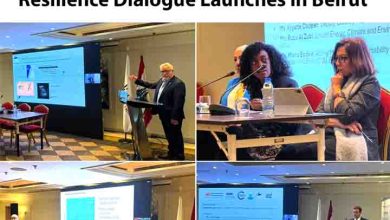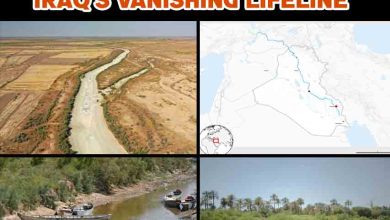#ADB Board of Governors’ four-day annual moot starts on Tuesday
#SEOUL : The Asian Development Bank (ADB), one of the top international financial lenders, is all set to hold the Board of Governors’ 56th annual meeting at South Korean city Incheon, bordering the capital of Seoul, from May 2 to 5.
The theme for this year’s conference is “Rebounding Asia: Recover Reconnect, and Reform,” wherein relevant issues will be discussed with members and development partners in working toward an inclusive, resilient, and prosperous Asia and the Pacific.
The forum would be taking up a wide range of issues including food security, #climate change, and dealing with external shocks such as the Russian invasion of Ukraine, paving the way for sustainability and progress of the region with robust economic policies.
Besides, it would deliberate on various reforms that the ADB is undertaking to introduce innovative climate financing, expand its lending capacity, and restructure to better meet the needs of its developing member countries.
The meeting is being held at a time when Pakistan had recently witnessed massive floods caused by torrential rains, inflicting losses of over $30 billion to the national economy and created issues of food security, damaged infrastructure, washed away livestock and collapsed houses. There is a forecast of another spell of heavy downpours in parts of the country this season again that could lead to further devastation of the already calamity-hit nation.
According to a media report, the rains and flooding-2022 submerged a third of Pakistan and killed more than 1,191 people, including 399 children as the United Nations appealed for aid for what it described as an “unprecedented climate catastrophe.”
Pakistan received nearly twice as much rain than the 30-year average in the quarter through August last year, totaling 390.7 millimeters (15.38 inches). Sindh province, with a population of 50 million, was hardest hit, getting 471% more rain than the 30-year average.
It’s all about climate change for which Pakistan in no way is responsible but a ‘most vulnerable country’ to all the negative impacts of the changing weather patterns. So it is natural that Pakistan would be expecting the ADB to look into the miseries faced by its people and extend the much-required financial assistance to cope with this challenge.
Although the ADB in its annual report for the year 2022 said funding to Pakistan reached a high level as it financed projects amounting to $31.8 billion in Asia, and Pakistan was the recipient of projects worth $5.5 billion. Concessional loans of $2 billion and $60 million were also granted to Pakistan.
In the report, the ADP itself admitted that the floods had devastated Pakistan’s economy, with crops being destroyed, supply and demand deteriorating, and local inflation increasing as a result of crop destruction.
On May 2, the annual moot would begin with a presser of ADB President Masatsugu Asakawa, followed by the “Korea Seminar Day’ which contains a series of sessions addressing current issues facing Asia and the Pacific. It would highlight topics related to the Annual Meeting theme, besides sharing experiences and culture of the host country, the Republic of Korea.
There will be another seminar titled “Funding Asia’s ESG Transition” focusing that Environmental, Social and Governance (ESG) financing has been a booming sector in Asia, with green, social, and sustainable debt offerings entering the mainstream. Investors are keen to ensure that issuers are not only focused on marketing benefits but also on meeting ambitious decarbonization targets.
The same day on a sideline event, ASEAN+3 Finance Ministers and Central Bank Governors would jointly launch a report with ADB on innovative financing solutions for infrastructure investments in the ASEAN+3 region. The report is intended as a user-friendly policy toolkit for companies, investors, policymakers, and financing agencies to promote the use of creative infrastructure financing models. The report also distills lessons learned and presents select case studies which could be adapted, replicated, or upscaled in the ASEAN+3 context.
The conference organizer would be holding another Seminar themed “The Green Transition, Needs a Green Workforce: The Role of Skills Development for a Just Transition” explores the critical role of skills development in preparing the workforce for the green economy. The focus will be on facilitating the just transition for people whose livelihood depends on pollution-intensive sectors that will be phased out.
Panelists will discuss the importance of policy coordination, incentives, targeted re-skilling and up-skilling, and the role of the private sector in preparing workers for green jobs.
A Civil Society Programme titled “Challenging Ways Forward: Asserting Communities’ Considerations on Just Transition”, would be organized by NGO Forum on ADB, GAIA-AP, Indus Consortium, Trend Asia & APMDD.
Panelists will discuss notions of just transition from the viewpoint of communities where ADB-supported projects are located. They will present insights into the recovery across the region within the context of the energy and climate crises, the inequities that have been exacerbated by the pandemic, growing debt service payments of borrowing members, and increasing constraints on civil society advocacy.
There will also be an institutional event themed “The Steps for Making the Regional Flyway Initiative a Reality.” The ADB Regional Flyway Initiative (RFI) is one of ADB’s flagship nature-positive programs that will also deliver for people and the climate. Launched at COP15 in 2021, the RFI is seeking to deliver $3 billion of investments into the sustainable management of wetlands along the East Asian-Australasian Flyway over the next 10-plus years.
The session will summarize progress since the RFI’s launch and highlight actions needed to move it from the development phase into the investment phase in 2023.
The first-day proceedings of the conference are likely to conclude with the “ADB Ventures-KMOEF Signing Ceremony.”







